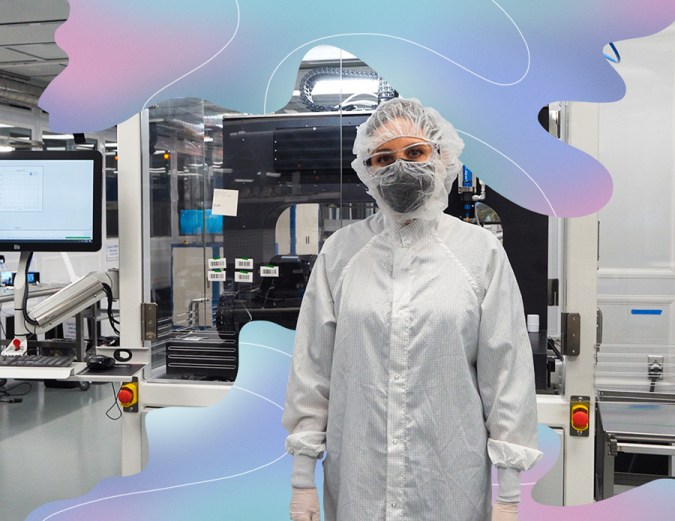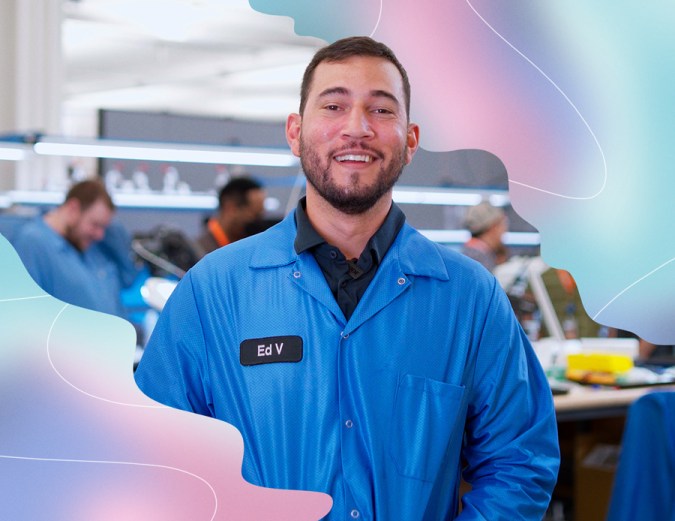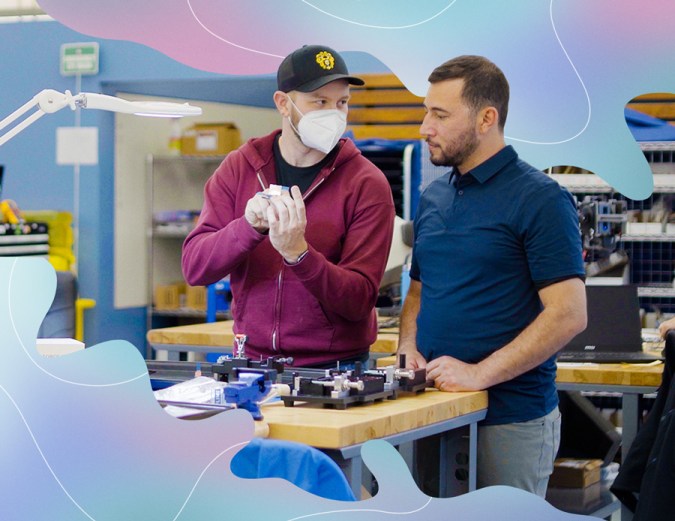Whatever you think the metaverse is, you’re likely only imagining a fraction of the immersive reality and technology that will be possible in the near future. In fact, with the help of talented forward-thinkers like Nora Naranjo and Ed Valarezo, the metaverse is already here.
Reality Labs is a business group at Meta that brings together a world-class team of researchers, developers and engineers to build the future of virtual and augmented reality. Naranjo said the Lab is always “looking for ways [to] improve life through the means of the metaverse.”
Naranjo, who is of Mexican descent, and Valarezo, who is of Panamanian descent, both work in the engineering integration department at Meta where they, as Naranjo puts it, “build systems to enable discoveries.”

One of those discoveries is Meta’s first pair of AR glasses. With a hopeful release in 2024, CEO Mark Zuckerberg called these glasses a “holy grail” device that will “redefine our relationship with technology.”
“A lot of these technologies have never been built into a device like this before,” Valarezo said. “I’m always working on future products that I can’t tell my mom about until much later.”
A product like Meta’s smart glasses can lead the company into creating new tools for people who are visually impaired. Naranjo’s younger sister is legally blind, so working on a product that can give her own sister a better quality of life, adds even more initiative to the project.
“This personal mission is something I’ve found in a lot of the Latinx community members of Meta,” Naranjo said. “We all have a north star when we’re designing a product. Whose life do we want to improve? We hold ourselves accountable to that. My sister is my north star.”

Valarezo’s north star is his son, who is on the autism spectrum. Through some of the technology he’s helped create, Valarezo has been able to set goals for his son to achieve — like recollecting certain information and following a routine.
“It opened my mind about what we’re going to be able to do for folks,” Valarezo said. “There’s a lot of medical accessibility pieces that are going to be huge.”
As members of the Latinx community, both Naranjo and Valarezo also see the incredible possibilities the metaverse will have in language, too. Naranjo dreams that one day her Mexican family can sit across from her American friends and have a seamless conversation. Through the use of technology, everyone would be able to speak their native tongue and their words could be translated through visual subtitles or through an auditory conversion.
“The idea of the metaverse is not entertainment first, it’s community driven, at least for me,” Naranjo said. “Having everyone laughing together and creating a community will empower my family to feel more comfortable in this country. It would create so many more meaningful conversations.”

From his end, Valarezo also collects feedback from Latinx audiences that use Meta-designed technology. He’s always trying to better understand what kind of content they would like to see, including the ability to create diverse avatars for use across multiple Meta technologies.
“There’s always these initiatives that we’re able to plug into,” Valarezo said. “We’re already in the metaverse. Now, we want to give the perspective from our community as we continue to develop these technologies.”
To learn more about Reality Labs at Meta, click here.





